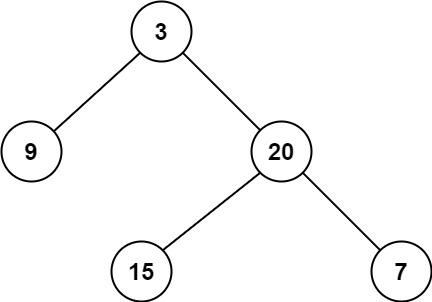111. Minimum Depth Of Binary Tree
Tree Depth-First Search Breadth-First Search Binary Tree
Problem - Minimum Depth Of Binary Tree
Easy
Given a binary tree, find its minimum depth.
The minimum depth is the number of nodes along the shortest path from the root node down to the nearest leaf node.
Note: A leaf is a node with no children.
Example 1:
Input: root = [3,9,20,null,null,15,7] Output: 2
Example 2:
Input: root = [2,null,3,null,4,null,5,null,6] Output: 5
Constraints:
- The number of nodes in the tree is in the range
[0, 105]. -1000 <= Node.val <= 1000
Solutions
1 2 3 4 5 6 7 8 9 10 11 12 13 14 15 16 17 18 19 20 21 22 23 24 25 26 27 28 29 30 31 32 | |
Submission Stats:
- Runtime: 3 ms (79.15%)
- Memory: 50.3 MB (47.14%)
